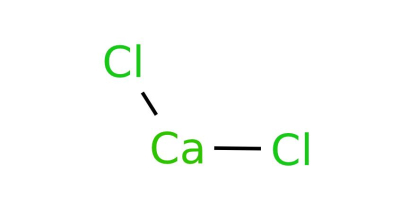Trimellitic Anhydride CAS#7552-30-7
High Solubility: Easily dissolves in water, ethanol, acetone, and other common organic solvents.
Versatile Form: Available in both powder and flake forms for flexible application needs.
Reactive Anhydride Structure: As the anhydride of trimellitic acid, it offers valuable reactivity in chemical synthesis.
Purity and Stability: Appears as a white solid, indicating high purity and chemical stability.
Trimellitic anhydride appears as a white powder or flake-like solid and is the anhydride form of trimellitic acid (1,2,4-benzenetricarboxylic acid). It dissolves readily in water, ethanol, acetone, and a variety of common organic solvents.
Parameters
Melting point | 163-166 °C (lit.) |
Boiling point | 390 °C |
density | 1.54 |
vapor density | 6.6 (vs air) |
vapor pressure | <0.01 mm Hg ( 20 °C) |
refractive index | 1.4717 (estimate) |
Fp | 227 °C |
storage temp. | Store below +30°C. |
solubility | 24.4g/l (decomposition) |
pka | 3.11±0.20(Predicted) |
form | Flakes |
color | White to off-white |
PH | 2 (21g/l, H2O, 20℃) |
explosive limit | 1-7%(V) |
Water Solubility | DECOMPOSES |
Sensitive | Moisture Sensitive |
Merck | 14,9703 |
BRN | 9394 |
Exposure limits | ACGIH: TWA 0.0005 mg/m3; STEL 0.002 mg/m3 (Skin) |
Stability: | Stable. Moisture sensitive. |
InChIKey | SRPWOOOHEPICQU-UHFFFAOYSA-N |
LogP | 0.06-0.54 at 20℃ |
CAS DataBase Reference | 552-30-7(CAS DataBase Reference) |
NIST Chemistry Reference | Trimellitic anhydride(552-30-7) |
EPA Substance Registry System | Trimellitic anhydride (552-30-7) |
Safety Information
Hazard Codes | Xn |
Risk Statements | 37-41-42/43 |
Safety Statements | 22-26-36/37/39 |
OEB | D |
OEL | TWA: 0.005 ppm (0.04 mg/m3) Should be handled in the workplace as an extremely toxic substance. |
WGK Germany | 1 |
RTECS | DC2050000 |
F | 10-21 |
TSCA | Yes |
HS Code | 29173980 |
Hazardous Substances Data | 552-30-7(Hazardous Substances Data) |
Toxicity | LD50 orally in Rabbit: > 2730 mg/kg LD50 dermal Rabbit 23000 mg/kg |

Trimellitic anhydride is primarily used in the production of trimellitate plasticizers with excellent resistance to heat, weathering, and solvents, among which tri(2-ethylhexyl)trimellitate is the most widely utilized. Additionally, it serves as a raw material for synthesizing polyester resins and can also function as a curing agent for epoxy resins.












